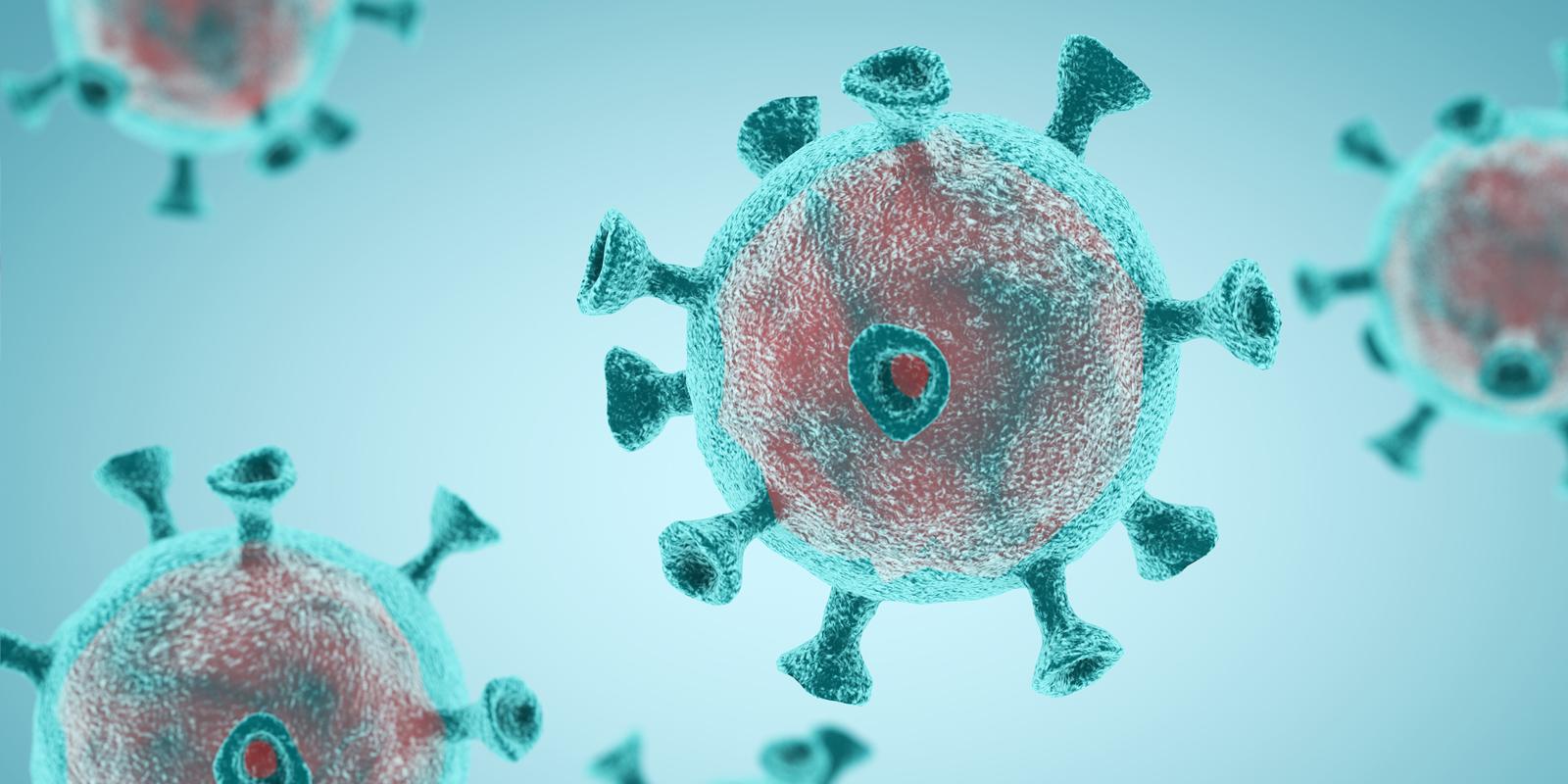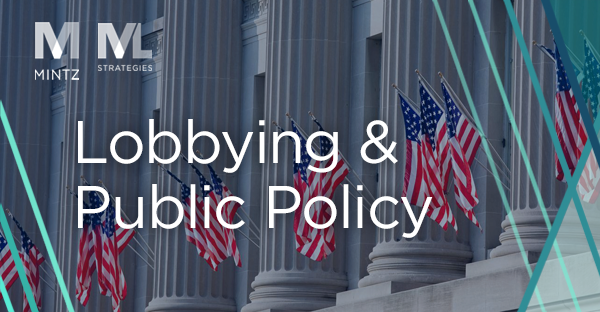
COVID-19 Viewpoints
Filter by:
FDA Continues Its Diverse Agency Actions in Response to COVID-19 Pandemic
April 22, 2020 | Blog | By Joanne Hawana
Since our last roundup-style blog post on the response of the Food and Drug Administration (FDA) to the COVID-19 public health emergency, the agency has taken a wide variety of additional actions with the goal of getting much-needed medical products into the hands of health care providers on the frontlines of the pandemic as it hits the United States hard. We’ve already covered recent FDA policy changes aimed at expanding the availability of face masks, face shields, and respirators (see prior post here), so today’s post will focus on other emergency actions outside of the personal protective equipment space. Mintz clinical laboratory experts are also preparing separate articles on the diagnostic and antibody testing issues ongoing with the COVID-19 response, so we are not going to discuss testing in today’s post either.
Read more
Seeking FCC Flexibility on the Sale of Wireless Medical Devices During COVID-19
April 22, 2020 | Blog
We’ve written previously about the role of the Federal Communications Commission (FCC) in regulating wireless medical devices, chiefly in determining the operating frequency and certain technical rules that ensure co-existence with other devices and wireless users. As part of that process, manufacturers must submit prototypes of new devices for testing and review by independent third party test labs and certification bodies (TCBs). The FCC prohibits responsible parties, such as manufacturers and resellers, from importing, marketing, or selling any device subject to this equipment approval process prior to obtaining approval from a TCB, which comes in the form of a grant of equipment certification.
Read more
Updated: Summary of the U.S. Department of Labor’s FFCRA Regulations
April 22, 2020 | Blog | By Nicole Rivers, Michael Arnold
The U.S. Department of Labor (“DOL”) has released its 124-page temporary regulations of the Families First Coronavirus Response Act (“FFCRA”).
Read more
In Application of American Express to Horizontal Merger Challenge, District Court Allows Merger of Airline Ticket Platforms
April 21, 2020 | Alert | By Joseph Miller , Bruce Sokler, Tinny Song
Read about a federal district court in Delaware’s denial of the DOJ’s challenge under the Clayton Act of Sabre Corp.’s $360 million acquisition of Farelogix Inc.
Read more
Forthcoming Executive Order Will Bar Green Card Seekers for 60 Days
April 21, 2020 | Blog | By Susan Cohen
Governor Baker Signs Legislation Creating a Temporary Moratorium on Evictions: What Commercial Landlords Need to Know
April 21, 2020 | Blog | By Kelly Frey, Jennifer Kiely, Chelsea Wood-Brown
Today, April 20, 2020, Governor Charles Baker signed into law an act providing for a moratorium on evictions and as well as foreclosures of residential property (the “Act”) during the pendency of Massachusetts’ COVID-19 emergency declared by the Governor on March 10, 2020.
Read more
FINRA Provides Guidance on Client Communications and Supervision During COVID-19 Pandemic
April 21, 2020 | Blog
Because they are working from home and are not able to meet clients face-to-face due to COVID-19 restrictions, many registered representatives are communicating with clients via live audio or video conference meetings.
Read more
NYDFS Issues New Guidance Regarding COVID-19 Cybersecurity Risks
April 20, 2020 | Blog | By Cynthia Larose, Christopher Buontempo
The New York Department of Financial Services (“NYDFS”) recently issued new guidance to regulated entities regarding cybersecurity awareness during the COVID-19 pandemic - citing a significant increase in cybercrime and criminals seeking to exploit the pandemic.
Read more
The Sobering Truth behind COVID-19’s Impact on Massachusetts’ Annual Budget
April 20, 2020 | Blog | By Steven Baddour, Daniel Connelly, Caitlin Beresin, Kaitlyn Sprague, Taylor Shepherd
Economists create graphs, charts and projections on the economy daily, crafting commentary to explain the ebbs and flows of market success and failures based on a variety of factors. That is no longer the case as the nation battles the novel coronavirus (“COVID-19”). Economist’s projections are at the mercy of the raging virus as many states enter “the surge”, compromising health care systems, learning institutions and local economies nationwide.
Read more
CDC Relaxes Self-Isolation Guidelines for Critical Infrastructure Workers
April 20, 2020 | Blog | By Delaney Busch
Employers in essential or “critical infrastructure” industries face significant challenges in maintaining business operations while ensuring the health and safety of their employees and their community. On April 8, 2020, the Centers for Disease Control and Prevention (“CDC”) relaxed its previous guidance on critical infrastructure workers returning to work or continuing to work after being “potentially exposed” to COVID-19. The interim guidelines now allow critical infrastructure workers who have had potential exposure to COVID-19 to return to work more quickly, or to continue working, provided the workers (i) are and remain asymptomatic; and (ii) that their employer(s) implement certain policies and/or protocols to protect their employees, as well as the community.
Read more
Nasdaq Temporarily Extends Compliance Periods for Certain Continued Listing Requirements Due to COVID-19
April 20, 2020 | Advisory | By Daniel T. Kajunski
This article covers SEC changes, made in response to the COVID-19 pandemic, that give Nasdaq listed companies additional time to regain compliance with certain continued listing requirements regarding the bid price and market value of publicly held shares. Nasdaq Temporarily Extends Compliance Periods for Certain Continued Listing Requirements as a Result of Coronavirus (COVID-19)
Read more
State Securities Regulators Renew Warnings of COVID-19 Investment Scams
April 17, 2020 | Blog
Several State Securities Regulators continue to warn investors of investment scams involving COVID-19.
Read more
FINRA Issues Guidance on Net Capital Treatment of PPP Loans under the CARES Act
April 17, 2020 | Blog | By Pete Michaels
In its online forum regarding COVID-19/Coronavirus, FINRA has issued guidance related to PPP loans.
Read more
Steps Your Company Should Consider Now to Protect Value with a Wave of Trade Secret Litigation on the Horizon Due to COVID-19 Pandemic, Economic Downturn, and Jobless Claims
April 17, 2020 | Blog | By Michael Renaud, Nicholas Armington
The coronavirus pandemic has created profound changes to how many Americans do their work, with an outsized number now working from home. This arrangement, while necessary given social distancing requirements and the stay-at-home advisories in many states, has created a marked increase to the threat of trade secret misappropriation.
Read more
ML Strategies COVID-19 Insights Week In Review — April 17, 2020
April 17, 2020 | Article
Read ML Strategies' analysis of federal and state legislative and regulatory responses to public health and economic issues related to the COVID-19 pandemic.
Read more
FINRA Says Receipt of PPP Loan May Not Require Form U-4 Disclosure
April 15, 2020 | Blog
In its online forum regarding COVID-19/Coronavirus, FINRA stated that a loan received pursuant to the Paycheck Protection Program (PPP) does not necessarily trigger a disclosure on the Form U-4
Read more
Four Things to Know About Trump’s Executive Order on Hoarding of PPE
April 15, 2020 | Blog | By Theresa Carnegie
In response to the spread of COVID-19, on March 23, 2020, President Trump signed Executive Order 13910 (Order) to prevent the hoarding of health and medical resources necessary to respond to the spread of COVID-19 within the United States. Through the Order, the President delegated his authority under the Defense Production Act of 1950, 50 U.S.C. § 4512 (Act) to the Secretary of Health and Human Services (HHS). The Order authorizes HHS to protect scarce and threatened health care and medical items by designating particular items as protected under the Act (Designated Items). Once an item is designated, the Act makes it a crime for any person to accumulate Designated Items: (i) in excess of the reasonable demands of business, personal, or home consumption; or (ii) for the purpose of resale at prices in excess of prevailing market prices. In this post, we discuss four things to know in connection with the Order.
Read more
Highlights from Three-Agency FAQs about the FFCRA and the CARES Act Relating to Group Health Plans
April 15, 2020 | Blog | By Patricia Moran
On April 11, 2020, the Departments of Labor, Health and Human Services, and the Treasury issued a set of FAQs intended to assist stakeholders grappling with the provisions of the FFCRA and the CARES Act governing group health plans, health insurance issuers, and others. This post reports on the FAQ highlights.
Read more










